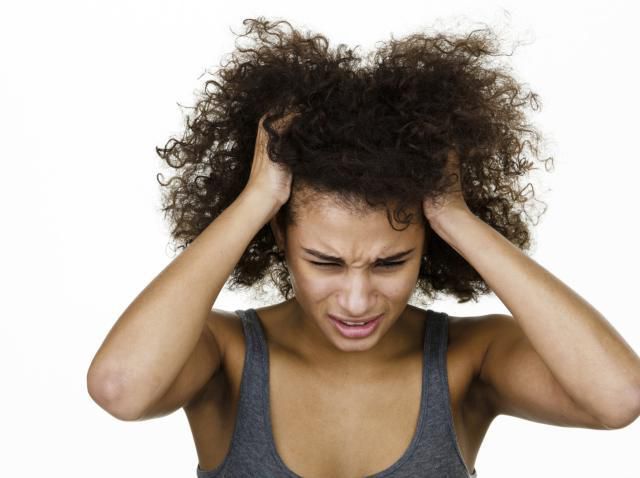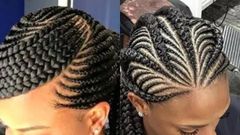Braids are a beloved hairstyle across Nigeria, Ghana, and much of West Africa. They offer a stylish look while protecting your natural hair from daily manipulation and harsh weather. Yet, even the most beautiful braids have an expiry date, and wearing them too long can cause more harm than good. It’s essential to listen to your body and your scalp—if you notice any of the warning signs below, it might be time to take those braids out for the sake of your hair health.
Unexplained headaches that won’t go away
If you’ve started experiencing constant headaches since installing your braids, you’re not alone. Several women across Lagos, Abuja, Accra, and beyond report headaches that don’t seem to go away, even with over-the-counter painkillers, after getting their hair braided tightly. According to Dr. Uche Onyeaku, a dermatologist based in Lagos, “Persistent headaches often suggest the braids are pulling too hard on your scalp. Prolonged tension can stress the nerves and even lead to traction alopecia.”
Tight braiding may look neat, but it can cause discomfort that shouldn’t be ignored. Your body uses pain as a signal—if you’re constantly reaching for paracetamol, your braids may be overdue for removal. Frequent headaches due to braids are not only uncomfortable, but repeated exposure to this stress can cause long-term scalp damage if not addressed early.
![Headaches [Deposit Photos]](https://nowahalazone.com/wp-content/uploads/2025/10/842aef34-120d-4411-8b32-1353420022bb-1.webp)
Headaches [Deposit Photos]
Stubborn and recurring colds
It may sound surprising, but there is some anecdotal evidence linking long-term braid wearing with stubborn colds or fatigue. Some stylists in Ikeja report clients complaining about lingering sniffles or feeling run-down after leaving braids in for weeks on end. Medical experts, such as Dr. Freda Owusu, a community health practitioner in Accra, suggest the cause is indirect. “Heavy braids put prolonged tension on the scalp and neck. This can sometimes cause muscle fatigue and increase stress, mildly suppressing the immune system, especially when combined with poor sleep or lack of hair washing.”
If you find yourself fighting back-to-back colds or your immune system seems weaker than usual, consider whether your hairstyle could be a contributing factor. While there’s no scientific consensus, many West African women have reported improved health once they gave their scalp a break and maintained better hygiene during braid installations.
Intensely itchy scalp
Almost everyone who gets braids knows the familiar tingle of an itchy scalp. However, if the itch becomes incessant or unbearable, it’s a clear signal that your scalp needs attention. According to experts, intense itchiness is frequently the result of product buildup, sweat, dead skin cells, or simply the scalp’s inability to breathe under tightly woven extensions.
Prolonged neglect of itchy scalp can open the door to other problems, including dandruff, fungal infections, or even sores. As reported in a 2023 Lagos-based beauty survey, over 40% of women who kept braids in beyond four weeks experienced moderate to severe itching, with many eventually seeking medical advice. Regular scalp cleansing and moisturizing helps, but at a point, the best solution is to remove the braids entirely and restore your scalp’s natural balance.

Intensely itchy scalp
Strong smell
Few things are as alarming—or as embarrassing—as noticing an unpleasant smell when you move your head. If a strong, sour, or musty odour starts to waft from your braids, this usually means a combination of sweat, dirt, product, and moisture has accumulated over time. Warm, humid conditions common in Nigeria and Ghana make this happen even faster, especially among commuters or active individuals who sweat often or cover their hair for work or religious reasons.
“Mould and bacteria can thrive in warm, damp environments, especially if you’re not washing your hair regularly under the braids,” explains haircare specialist Kemi Adeoye from Ibadan. A thorough wash sometimes helps, but when the smell sticks around, removing the braids is non-negotiable. Taking a break, deep cleaning your hair and scalp, and letting it breathe is crucial for keeping your hair and scalp healthy and odour-free.
Ultimately, braids can be a fantastic protective style when managed with care and awareness. They’re part of our cultural heritage—seen everywhere from markets in Onitsha to runways in Johannesburg and Afrobeat music videos worldwide. Still, they require responsible upkeep and knowing when it’s time for a change.
Expert Insights and Local Voices
Nigerian and Ghanaian stylists routinely advise that no braid style should be kept in for longer than six to eight weeks, depending on individual hair growth and maintenance practices. “We always educate our clients about scalp health,” says Beauty Nnaji, a salon owner in Enugu. “We recommend removing braids once new growth is significant or if the scalp feels painful, itchy, or starts smelling.”
Popular Nigerian trichologist (hair and scalp specialist), Dr. Olaide Adebayo, also adds: “Regularly airing out your scalp, washing with gentle shampoos, and using lightweight oils can extend the life of braids, but nothing substitutes for taking them out when warning signs appear.”
- Pay attention to excessive hair shedding or breakage when undoing your braids—this could indicate damage from leaving them in too long.
- Cleanse your scalp at least once a week with diluted shampoo or scalp sprays while wearing braids.
- Cover braids with a satin scarf or bonnet at night to prevent friction and dryness.
- If in doubt, consult a professional stylist or trichologist before making decisions about your hair health.
Communities across Nigeria and West Africa are becoming increasingly aware of the importance of hair and scalp care relating to braided hairstyles. Social media platforms like Instagram and TikTok are filled with haircare influencers showing how to maintain braids safely, avoid pain and itching, and when to let go of old styles.
Comparative Lessons and Global Relevance
Across Africa and the African diaspora—from Abuja to Atlanta to Accra—cultural pride in braiding coexists with a growing movement for healthy haircare. Celebrities have started speaking out about learning from past hair mistakes and prioritizing scalp wellness. In countries like South Africa and Kenya, hair clinics have also cautioned against the risks of overusing protective styles at the expense of the scalp’s integrity.
Learning from different hair traditions worldwide shows that versatility and proper care can preserve both cultural identity and healthy hair. Taking braids out before problems arise is seen as a mark of self-care and empowerment, rather than a loss of style.
Conclusion: Listen to Your Scalp and Take Action
No style is worth sacrificing your health or comfort. In West Africa, braids are more than fashion—they’re heritage, creativity, and resilience combined. Treat your hair and scalp with respect: if you experience headaches, endless itching, bad odour, or recurring colds while wearing braids, give your scalp the care it deserves and take those braids out. Healthy hair grows best in a healthy environment.
Are you currently rocking braids? When do you know it’s time to remove them, and have you ever experienced any of these warning signs? Share your tips and experiences below so we can learn together!
Have you got a haircare story, tip, or experience you want to share? Maybe you or someone you know wants to sell an inspiring story or beauty secret? We’d love to hear from you! Email us at story@nowahalazone.com to get your story featured or discuss story sales.
For general support, reach out at support@nowahalazone.com.
Follow us on Facebook, X (Twitter), and Instagram for more wellness advice, stories, and beauty updates!










